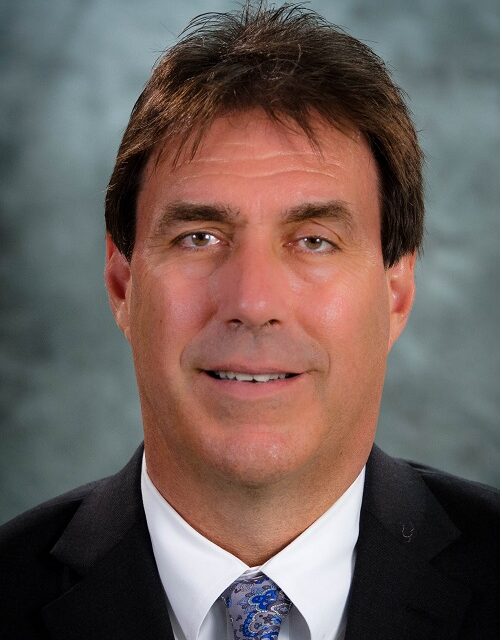By Lois Thomson
“If a college doesn’t change the way they taught a year or two ago, I don’t think they’re going to make it,” stated Dr. Bryan Stewart, president of Miami Dade College’s Medical Campus. “We have to reinvent ourselves as a campus and make sure we respond to how our students are learning, and how the world has changed with the pandemic.” If that’s true, the Medical Campus doesn’t have anything to worry about.
A year ago, Dr. Stewart and his staff were making adjustments to place the campus in a good position during the pandemic. He explained they worked on how to get students caught up on clinical rotation. “A year ago, our nursing students were doing everything virtually. The governor of Florida had approved for all their clinicals to be virtual so we purchased a software package that allowed us to do online clinical rotations. It’s been really great. But now, the governor’s order ended, so all of my nursing students have to be back on campus this fall.”

Dr. Stewart said the College also continues using a new teaching modality called MDC Live that started this past year and provides for virtual teaching. He described it as a flexible environment where the class is scheduled for a specific time, and the student can either be in the classroom or be virtual with their faculty.
He also talked about two new programs that are starting at the school. One is a surgical technology Associate in Science degree that he said has been in the making for a couple of years. “I’ve met with leadership at several hospitals and they tell me how desperate they are for surgical technicians. It’s a two-year degree and it’s going to be one of our most popular programs in the fall.” Dr. Stewart said the technician is essential to executing a successful surgery – they maintain a sterile field, and handle all the equipment, instruments, supplies, medications, and anything else a physician needs during a surgical procedure. “They really play a vital role.”
The second program is a one-year certificate to become a central sterile processor, which is a stackable credential for the surgical technician degree. “Those are the individuals who clean the instruments, so they can start as a central sterile processor and work their way up. There’s just as much need for that, and some students may want to start in that position and gain confidence before they get into surgical technician,” he said.
With all of this in place, Dr. Stewart said not only is the overall application pool up 81%, but even more impressive is that the quality of the pool is also up. In past years, about half of the applications didn’t meet qualifications or weren’t ready to be taken into the program, whereas this year more than 80% of the pool could be selected. “You can tell we have a really strong group of students who will start here in the fall.”
Unfortunately, as is happening everywhere, the College may be facing a new challenge in coming months: the delta variant of the coronavirus. Dr. Stewart said that as part of the planning process, “We’re trying to be creative on how to deal with this delta variant. We’re still going to be open 100%, but we’re going to be careful to follow the CDC guidelines.” In addition, he said that certain hospitals have a policy requiring all students in their clinical rotations to be vaccinated.
Baptist and Jackson Health System have both expressed how valuable the students are. “Both told us that when the pandemic happened, they weren’t sure what to do, so they took no students on the hospital campus,” Dr. Stewart said. They realized, though, that the students do many things that allow the hospital employees to work in other areas. “The pandemic can be a strategic teaching opportunity, and I think we all learned a lot. I don’t think we’re going to follow the same traditions that we did with this one, by saying the doors are closed. I think the hospitals have realized how valuable our students can be to support the network of the hospitals.”
In summarizing the past year, Dr. Stewart said, “The campus is looking really strong for fall; I think it’s an exciting time. People who want to help are able to see the medical field as a great opportunity, and jobs are plentiful.
“I think we figured it out pretty well.”
For more information, call (305) 237-4141 or visit mdc.edu.


























